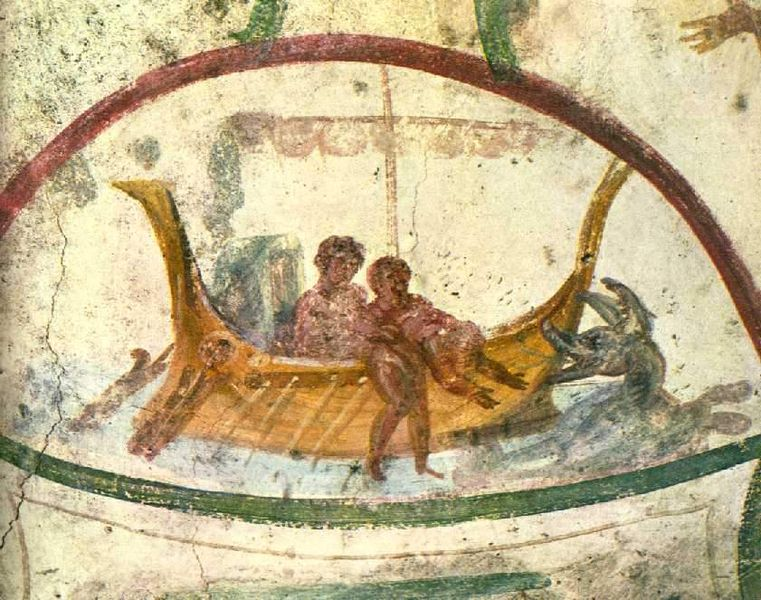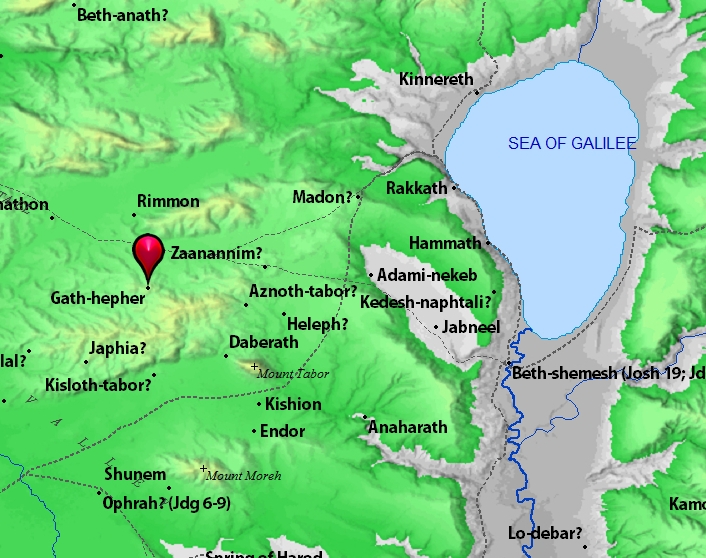In these reflections I discuss only some of the verbal signs in more detail. A comprehensive commentary of Jonah 2 could fill an entire book or two.
Jesus of Nazareth refers to the introduction verse of the prayer in the Gospel of Matthew but we shall see how crucially the contents of the entire prayer are related to Him.
“A wicked and adulterous generation asks for a sign! But none will be given it except the sign of the prophet Jonah. For as Jonah was three days and three nights in the belly of a huge fish, so the Son of Man will be three days and three nights in the heart of the earth."
Matthew 12:39-40 NIV
Jonah 2:2
ויאמר קראתי מצרה לי אל־יהוה ויענני מבטן שׁאול שׁועתי שׁמעת קולי׃
In my distress I called to the Lord,
and he answered me.
From deep in the realm of the dead I called for help,
and you listened to my cry.
The Hebrew text has the expression beten sheol - literally "the belly of Sheol" the rather sad place where dead souls were after death. In other words, dead Jonah is calling God from the real of the dead, Sheol, as NIV translates the verse.
Dead man praying in the tomb (belly of Sheol) and God hearing him. Truly paranormal activity!
Two views on resurrection in New Testament period Judaism
Judaism was deeply divided on the matter of resurrection of the dead: Sadducees held the traditional view saying in essence that a dead man is dead. The souls are in Sheol maybe in some sort of existence but the story is essentially over. Pharisees, on the other hand, believed in the new teaching in Judaism (some scholars suggests possibly of Iranian background) that God will eventually raise the dead and bring them back from Sheol.
Resurrection and marriage laws
Sadducees confronted Jesus on the matter of resurrection by demonstrating how illogical the new doctrine is. Since Moses commands that one of the brothers marries a woman if the deceases man has no offspring the belief in resurrection rises an impossibility: suppose seven brothers all marry the same woman and die without having a child with her "whose wife she will be in the resurrection"?Jesus answers the question and teaches Sadducees about the Biblical roots of the faith in resurrection by referring to the name of God used in the Torah "God of Abraham, Isaac and Jacob". So what?
Jesus replied, “Are you not in error because you do not know the Scriptures or the power of God? When the dead rise, they will neither marry nor be given in marriage; they will be like the angels in heaven. Now about the dead rising—have you not read in the Book of Moses, in the account of the burning bush, how God said to him, ‘I am the God of Abraham, the God of Isaac, and the God of Jacob’?
He is not the God of the dead, but of the living. You are badly mistaken!”
Mark 12:24-27
Rich man and Lazarus
The parable of the Rich man and Lazarus does not refer to resurrection of dead but rather to life after death. In the Gospel of Luke Jesus talks about two kinds of existence after death that are essentially connected to what happens in this life before death.
There was a rich man who was dressed in purple and fine linen and lived in luxury every day. At his gate was laid a beggar named Lazarus, covered with sores and longing to eat what fell from the rich man’s table. Even the dogs came and licked his sores.Gospel of Luke uses here the well-known Greek word Hades ᾅδης that King James Version translates "Hell" while Lazarus is "in the bosom of Abraham".
The time came when the beggar died and the angels carried him to Abraham’s side. The rich man also died and was buried. In Hades, where he was in torment, he looked up and saw Abraham far away, with Lazarus by his side. So he called to him, ‘Father Abraham, have pity on me and send Lazarus to dip the tip of his finger in water and cool my tongue, because I am in agony in this fire.’
But Abraham replied, ‘Son, remember that in your lifetime you received your good things, while Lazarus received bad things, but now he is comforted here and you are in agony. And besides all this, between us and you a great chasm has been set in place, so that those who want to go from here to you cannot, nor can anyone cross over from there to us.’
Luke 16:19-26 NIV
These dead people exist in their realms and talk with Father Abraham in the same way as dead Jonah exists and prays in the Sheol.














